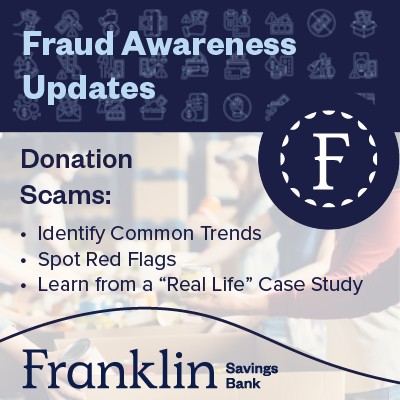Think Before You Give: Protecting Yourself from Donation Scams

In today’s world, generosity can sometimes be exploited by unscrupulous individuals. Donation scams prey on our willingness to help those in need, diverting funds away from legitimate causes. Understanding these scams and how to identify them is crucial for ensuring your contributions make a positive impact.
Common Types of Donation Scams:
- Fake Charities: Scammers establish bogus organizations with names resembling reputable charities to deceive donors.
- Crowdfunding Scams: Fraudulent campaigns on platforms solicit funds for fictitious personal causes.
- Impersonation Scams: Fraudsters pose as representatives of well-known charities via phone, email, or social media.
- Payment Scams: Requests for donations through untraceable methods like gift cards, cryptocurrency, or wire transfers.
Real-Life Case Study: Between 2017 and 2022, the Cancer Recovery Foundation International, also known as the Women’s Cancer Fund, collected over $18 million from donors, claiming the funds would assist women undergoing cancer treatment. However, only about 1% of these donations were used for their intended purpose, with the majority going to for-profit fundraisers and the operator, Gregory B. Anderson. This case highlights the importance of thoroughly vetting charities before contributing. Federal Trade Commission
How to Verify a Charity Before Donating:
- Research Organizations: Utilize resources like Charity Navigator and the BBB Wise Giving Alliance to assess the legitimacy of charities.
- Confirm Tax-Exempt Status: Check the IRS Tax-Exempt Organization Search to verify a charity’s status.
- Direct Communication: Contact charities using official channels to confirm solicitation authenticity.
Red Flags to Watch For:
- Urgent Appeals: High-pressure tactics demanding immediate donations.
- Unusual Payment Methods: Requests for donations via gift cards, cryptocurrency, or wire transfers.
- Unsolicited Communications: Unexpected emails, calls, or messages requesting donations.
Safe Donation Practices
- Donate Through Official Channels:
Always give through a charity’s verified website or phone number. Avoid clicking donation links in unsolicited emails or messages.
Why it matters: Scammers often use lookalike websites or phishing links to steal funds or personal info. - Use Secure, Traceable Payment Methods:
Use credit cards or trusted online platforms like PayPal. Avoid gift cards, wire transfers, or cryptocurrency.
Why it matters: Legitimate charities rarely request untraceable payment methods. Traceable methods offer fraud protection and dispute options. - Confirm the Charity’s Identity:
Look up the organization independently using sites like Charity Navigator or GuideStar, and verify its contact details.
Why it matters: Many scams use names or branding similar to real charities to trick donors. - Keep Detailed Records:
Save receipts, confirmation emails, and screenshots of your donations.
Why it matters: Good records help with tax deductions, allow you to verify transactions, and support dispute claims if needed. - Be Cautious After Disasters or Tragedies:
Scammers often exploit urgent events by mimicking relief efforts.
Why it matters: High-emotion events are a common trigger for donation fraud, especially via crowdfunding or social media.
By staying informed and vigilant, you can ensure your generosity supports genuine causes. Always take the time to verify before you give.
